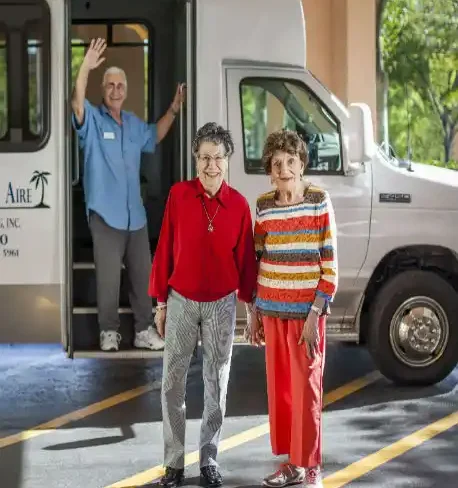Driving is important to all of us for many reasons. As we grow older, it often represents independence. Being able to maintain driving skills makes older adults feel as if they are still in charge of their daily lives. But there are some inevitable changes aging causes that make driving more challenging.
Arthritis can make it difficult to pull a seat belt closed. Hip problems can make it tough to enter and exit the vehicle. The good news is that there are driving aids that can help prevent a senior from hanging up the keys.
Here are a few tools the team at Five Star Senior Living has found that might help the older driver you love stay safe.
4 Driving Aids and Equipment to Support Older Drivers
- Broaden Your View. A driving aid that helps older adults gain a wider view of their surroundings is a mirror adapter. Two popular options are panoramic mirrors and blind spot mirrors. These are especially helpful for older adults who have experienced a loss in flexibility or have difficulty turning their head and shoulders.
- Reach the Pedal Easier. Another tool that keeps seniors safer behind the wheel is a foot pedal extender. They extend the length of the vehicle’s pedal to make it easier for an older driver to reach. This also minimizes the risk of having their foot slip off of the pedal. It also helps prevent the driver from sitting too close to the steering wheel where they can be injured if the car’s air bags are deployed.
- Greater Seat Belt Compliance. One reason older adults say they sometimes don’t wear a seat belt is that it is painful to reach over their shoulder to grab the belt and pull it closed. A driving aid that can help make it easier is a seat belt pull. These devices provide the senior with the additional four to six inches of reach they need.
- Safer Entry and Exit. Older adults experience many of their driving related falls during the times they are entering or exiting their car. A swivel seat cushion can make this process easier and safer for seniors with balance problems. The swivel seat cushion is placed on the driver’s seat. Then can use the frame of their car to turn around and sit down on the cushion. Once they are safely seated, the older adult can swivel around to face forward to drive.
To learn more about staying safe on the road in retirement years, visit AAA Foundation for Safe Driving. Their Flexibility Fitness Training for Improving Older Driver Performance has a series of exercises seniors can complete to improve their driving skills.

